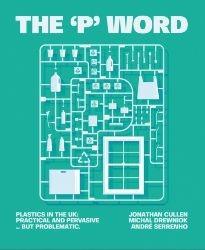
The Resource Efficiency Collective (Dept of Engineering) report, The 'P' Word, was released last week, which focusses on use of plastics in the UK. Plastics are ubiquitous in modern society, owing to their usefulness, durability and how cheap and easy they are to produce. This makes plastics both a blessing and a curse. We manufacture a myriad of plastic materials, used in countless consumer products, which are highly valued by society. Everything from milk bottles to window frames, from sunglasses to face masks, contains plastic. Plastics are pervasive due to their practicality and profitability.
This report tackles the data problem by mapping plastic flows through UK society, collating data from disparate sources on the production, use, disposal and recovery of plastics. With the resulting map of UK plastic flows, we can understand the latest trends in plastics use and identify opportunities for reducing the impacts of plastics in the future. The key messages highlight that the environmental impacts of plastics are greenhouse gas emissions and ocean waste pollution and are aggravated by their disposal. Increasing UK recycling capacity can reduce this. Urgent action is required to reduce the impacts of plastics.
The authors of the report, Jonathan Cullen, Michal Drewniok & André Cabrera Serrenho, are members of the Cambridge Creative Circular Plastics Centre (CirPlas). The Centre acts as a nucleus for a global network of partners and coordinates a range of research projects, workshops and forums to tackle contemporary challenges from the manufacturing of more sustainable materials to driving innovations in plastic recycling.
Click here to download the report.
Click here to learn more about the Resource Efficiency Collective.

